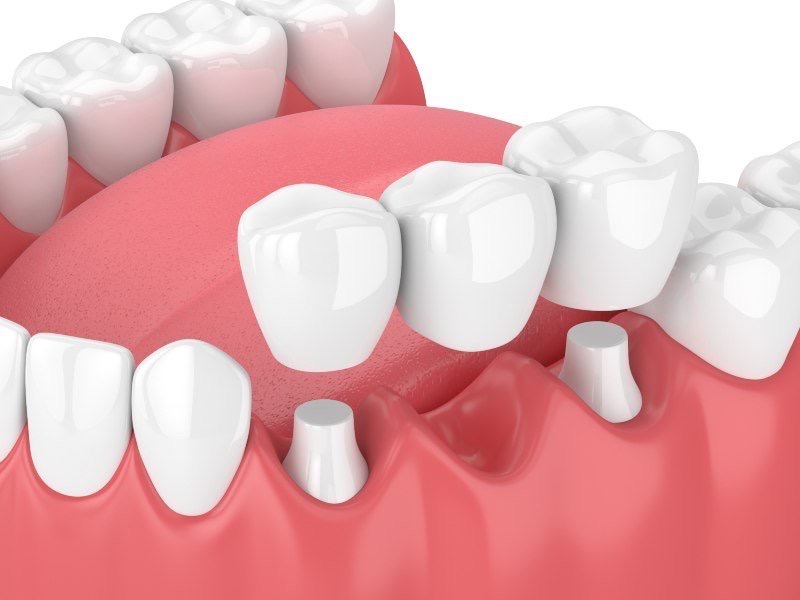Dentures Pompano Beach FL | JB Dentistry
Discover Dentures in JB Dentistry Pompano Beach FL
Regain Your Natural Bite With Full Or Partial Dentures in Pompano Beach FL That Are Comfortable

dentures
We’re delighted to welcome you to Dr. Jaline Boccuzzi’s dental clinic, where we strive to give our patients the best dental care and restore their smiles with cutting-edge dentures. Dentures make eating and speaking easier. Dentures work for all ages and backgrounds, contrary to popular belief. Dentures come in various materials and styles to match your needs. Your dentist will help you choose a denture that fits your lifestyle. Dentures improve dental health and smile for many people. Dentures can last years and be pleasant with proper care.




types of dentures
Several types of dentures are available, including full dentures, which replace all teeth in the upper or lower jaw, and partial dentures, which replace only a few missing teeth. Other options include implant-supported and temporary dentures, each offering unique benefits and characteristics.
full dentures
When all teeth in your upper or lower jaw need to be replaced, a removable prosthetic device called full dentures can do the job. They're custom-made to fit the patient's mouth and restore the patient's function and appearance in the case of total tooth loss.
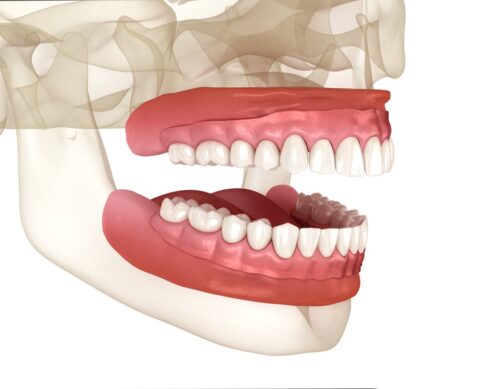
what is the process for full dentures?
Full dentures require multiple processes. The dentist inspects the patient’s mouth, takes impressions, and measures. These impressions make denture models. The dentist and patient debate denture shape, size, and color. After the dentures are created, a fitting session ensures optimum fit, comfort, and bite alignment. Fine-tuning dentures may require further appointments. Dentist appointments evaluate denture function, maintain oral health, and make any necessary changes or replacements.
how to care for dentures?
Proper care of dentures is crucial for their longevity and maintaining oral health. Here are some essential steps to care for dentures:
- Handle with care
- Clean daily
- Soak overnight
- Rinse after meals
- Brush gums and tongue
- Regular dental check-ups
Remember, proper denture care is essential for oral hygiene, preventing bad breath, and maintaining the comfort and functionality of dentures.
advantages and disadvantages of full dentures
Advantages of Full Dentures:
- Restored Appearance
- Improved Chewing and Speech
- Affordable Option
- Non-Invasive
Disadvantages of Full Dentures:
- Adjustment Period
- Reduced Chewing Efficiency
- Potential for Slippage
- Bone Resorption
- Maintenance and Care
It’s important to consult a dentist to assess individual needs and discuss all available tooth replacement options before deciding on full dentures.
what are full dentures?
Full dentures, also known as complete dentures, are removable dental prosthetic devices that replace all the teeth in either the mouth’s upper (maxillary) or lower (mandibular) arch. They are designed to restore the appearance, functionality, and oral health of individuals who have lost their natural teeth. Full dentures have gum-colored acrylic bases that fit over the gums, with artificial teeth attached that imitate genuine teeth. They are custom-made to suit each individual’s mouth and can be held in place by suction, dental adhesives, or implants for enhanced stability.
does insurance cover dentures?
Dental insurance often covers dentures. However, coverage depends on the insurance plan and its terms. Some insurance policies cover dentures fully, while others cover only certain types or qualities. Review your insurance policy or contact your provider to learn about deductibles, copayments, restrictions, and waiting periods. Some insurance plans require dental preauthorization or proof to pay dentures.
how long do dentures last?
Dentures’ lifespan depends on their quality, oral care, and mouth alterations. Well-maintained dentures last 5–10 years. Dentures may need modifications or relining when gum tissues and jawbones alter. Dentures may also stain or wear down. Dentures need regular dental checkups to be adjusted or replaced. Dentists can advise on denture maintenance and longevity.
what to expect with full dentures
When getting full dentures, here are some things you can expect:
- Initial Adjustment Period
- Customization Process
- Fitting Sessions
- Learning to Speak and Eat
- Denture Adhesives
- Oral Care and Maintenance
- Follow-Up Appointments
Remember, the initial adjustment period may require patience, but full dentures can restore appearance, functionality, and improved quality of life with time and proper care.
procedure and process of full dentures
The process of obtaining full dentures typically involves several steps:
- Initial Examination
- Impression and Measurement
- Tooth Selection and Shade Matching
- Fabrication
- Fitting Appointment
- Follow-Up Appointments
- Denture Care and Maintenance
- Regular Check-ups
It’s crucial to follow your dentist’s instructions regarding denture care and attend regular appointments to maintain the functionality and longevity of your full dentures.
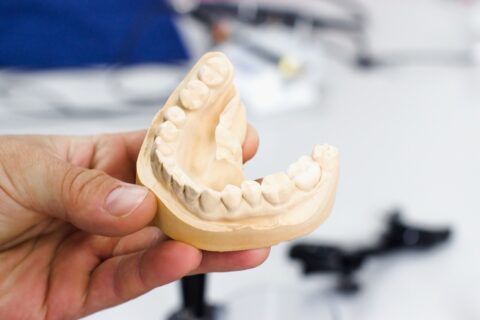
partial dentures
Partial dentures are dental prosthetic devices that can be removed and utilized to replace a lost tooth or teeth. Partial dentures are meant to fill in the spaces left by missing teeth, as opposed to full dentures, intended to replace an entire dental arch. They comprise a metal or acrylic framework that holds replacement teeth made to look and feel just like your real ones. Partial dentures use clasps or connectors that fasten to your natural teeth for support. It helps with aesthetics, chewing, keeping the other teeth in place, and supporting the mouth in general.
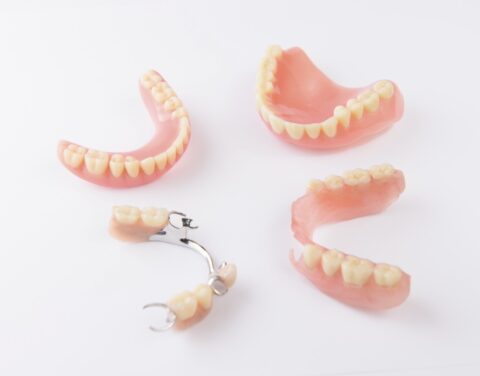
difference between full and partial dentures
Full dentures replace all teeth. These full-arch dentures are manufactured from a model of the patient’s mouth and cover the back molars to the front incisors. Partial dentures attach to a tooth or bridge, while full dentures need glue. Partial dentures support remaining teeth. These dentures have metal clasps that link to existing teeth and a removable plate with fake teeth. The patient can remove this denture for cleaning, however it should not be worn for long periods of time without a dentist’s supervision.
how many teeth do you need for partial dentures?
Partial dentures require different numbers of teeth depending on dental health. Partial dentures are usually utilized when a person has several missing teeth but still has some natural teeth in the dental arch. Partial dentures use the remaining teeth for stability and fill gaps left by lost teeth. The partial denture structure clasps or connects to these teeth.
can you eat all food with partial dentures?
Yes, you can still eat a variety of foods with partial dentures. Although some types of food may be difficult to chew or require extra care when eating, many people still enjoy a wide range of nutritious and delicious meals. Soft, moist foods such as cooked vegetables, pasta dishes, soups, and stews are usually the easiest to eat with partial dentures. It’s also important to ensure you chew food slowly and completely before swallowing to reduce the risk of choking or damaging dentures.
types of partial dentures
There are several types of partial dentures available, including:
- Cast Metal Partial Denture
- Acrylic Partial Dentures
- Flexible Partial Dentures
- Flipper Dentures
- Implant-Supported Partial Dentures
The choice of partial denture depends on various factors, such as the number and location of missing teeth, oral health conditions, esthetic concerns, and patient preference. It is best to consult a dentist who can evaluate your situation and recommend the most suitable type of partial denture.
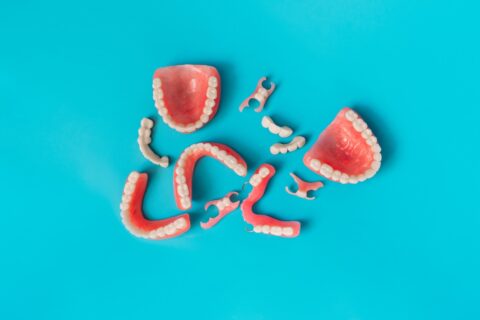
implant supported dentures
Dentures fixed and sustained by dental implants implanted surgically in the jawbone are known as implant-supported dentures. These dentures are more secure, provide better chewing function, and boost self-esteem. These prevent the need for denture adhesives while also making dentures more pleasant to wear.
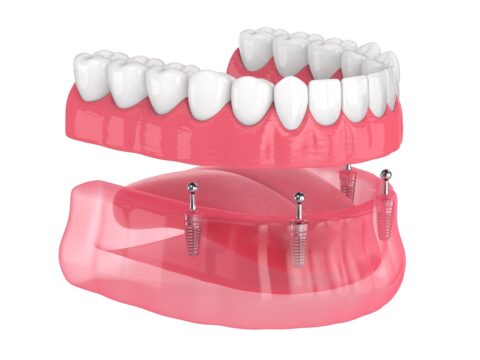
do i qualify for implant-supported dentures?
Implant-supported dentures require good oral health and enough jaw bone. They must also attend dentist appointments to monitor the implants. This denture may not be suitable for gum disease patients. Smokers should consult their dentist about implant failure risk. To maintain healthy implants, patients should brush and floss everyday as instructed by their dentist. Implant-supported dentures’ success percentage depends on patients’ dental hygiene.
fixed implant-supported dentures
Fixed implant-supported dentures, also called implant-supported fixed bridges or full-arch implant restorations, combine dental implants with fixed fixes. Multiple jawbone dental implants secure these dentures. The custom-made full-arch fixed denture is anchored by the implants. Fixed implant-supported dentures outperform removable dentures in stability, comfort, and aesthetics. They look natural and perform well, eliminating the need for denture adhesives and offering a permanent option for those who have lost all their teeth in an arch.
removable implant-supported dentures
Removable implant-supported dentures, also known as implant-retained overdentures, are dental prostheses that combine the benefits of dental implants with the convenience of removable dentures. These dentures are secured to dental implants surgically placed in the jawbone. The implants act as anchors for the denture, providing stability and support.
Removable implant-supported dentures offer improved retention and strength compared to conventional removable dentures. They can be easily removed for cleaning and maintenance while providing a secure fit during daily wear. This option allows for greater comfort, improved chewing ability, and increased confidence for individuals who have experienced significant tooth loss.
benefits of implant-supported dentures
Implant-supported dentures outperform removable and fixed dentures. They’re more stable than detachable dentures and don’t require denture adhesives or palate-less designs.
Implant-supported dentures fit snugly against the gums and jawbone, giving them a more natural appearance. Implant-supported dentures improve chewing efficiency and dental health. Daily bone stimulation from implant-supported dentures helps retain jawbone integrity. This preserves face structure and may slow tooth loss. Finally, implant-supported dentures can give people the confidence to smile and speak knowing their teeth will stay put.
Implant Supported Lower Denture
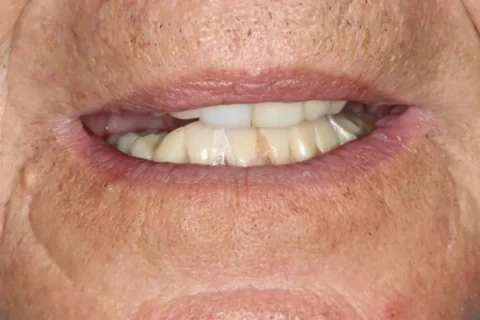
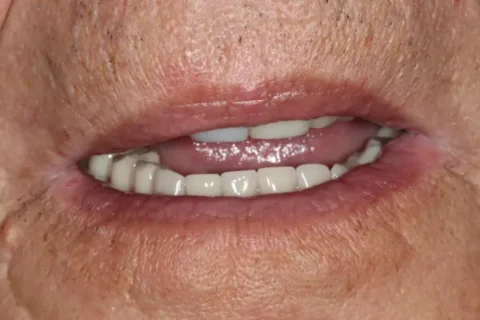
temporary dentures
what are temporary dentures?
Temporary dentures are used until permanent dentures are made. After tooth extraction, they can be inserted immediately. Temporary dentures restore appearance, function, and protect extraction areas during healing. As the gums and jawbone heal, they may need modifications or replacement. For better fit and function, temporary dentures are replaced with permanent ones after healing.
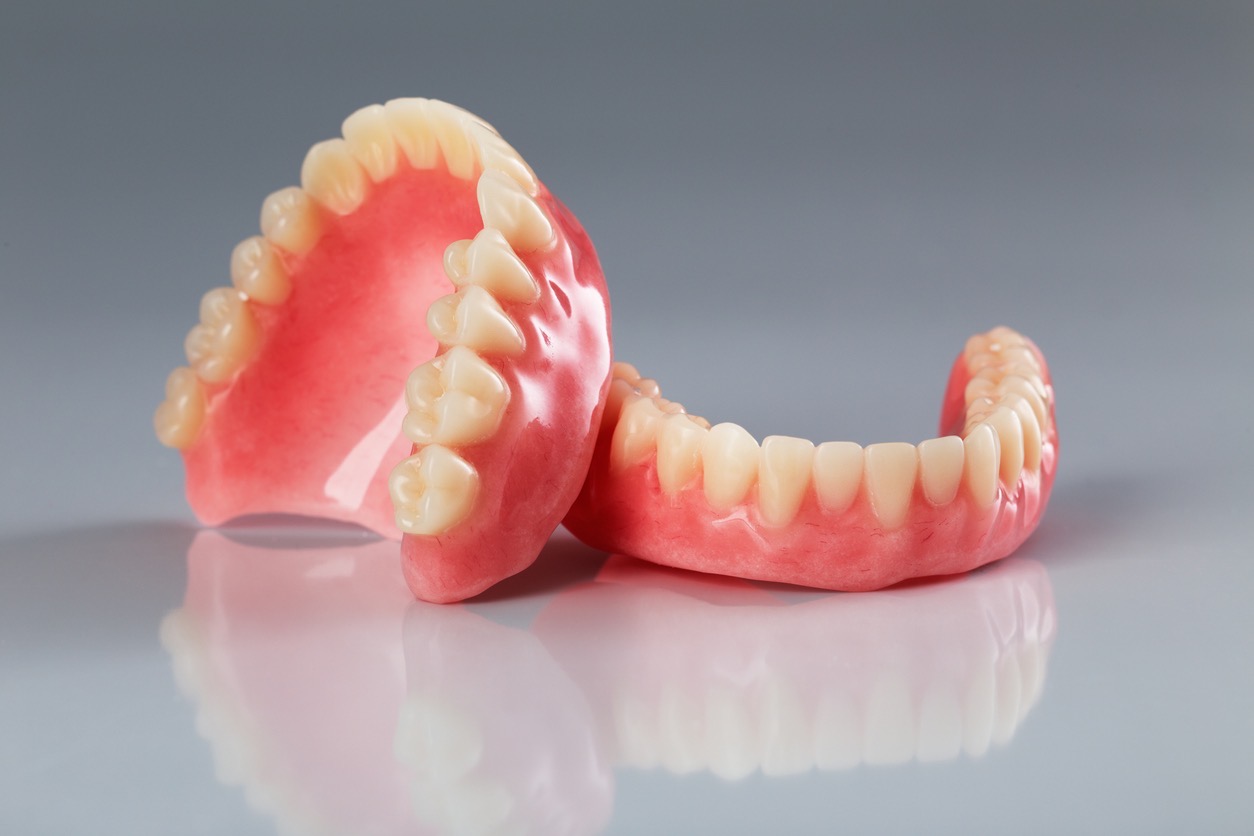
can you eat with temporary dentures?
Temporary dentures are less stable and comfortable than permanent dentures, but they allow you to eat. Temporary dentures require soft foods only. Applesauce, yogurt, porridge, mashed potatoes, and scrambled eggs are good. Harder foods might move dentures, cause pain, and infect the gums. To evenly bite, chew with both sides of your mouth.
are temporary dentures more cost-effective than full dentures?
Temporary or full dentures are both cost-effective. Budget and needs determine it. Temporary dentures can help while waiting for full dentures. For long-term solutions, complete dentures may be cheaper. Because they’re custom-fitted, full dentures are more stable and supportive than temporary dentures.
what to expect with temporary dentures
When getting temporary dentures, you should expect slight discomfort that may last several days. Your dentist will provide instructions on how to care for your denture and the necessary cleaning materials. It is important to follow these instructions closely to ensure a successful fit and prevent infection.
You should also be prepared for your mouth to adjust to wearing the dentures. It may take some time to become accustomed to speaking and eating with the dentures in place. You may also need frequent visits to your dentist during this adjustment period for adjustments and proper maintenance of the temporary denture.
denture repair
Denture repair refers to the process of fixing damaged or broken dentures. If your dentures become cracked, fractured, or damaged, it is essential to seek professional denture repair services. Denture repairs are typically performed by dental professionals or dental laboratories specializing in denture maintenance. The repair process involves the following:
- Assessing the damage.
- Making necessary adjustments or replacements to the denture components.
- Restoring the denture’s integrity and functionality.
It’s crucial to avoid attempting DIY repairs, as improper fixes can further damage the dentures or lead to ill-fitting prosthetics. Seeking professional assistance ensures that your dentures are properly repaired, allowing optimal comfort and functionality.
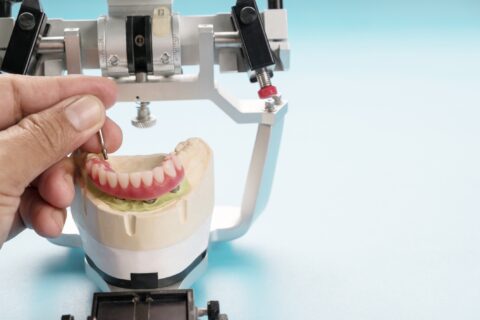
when you need denture repair
You may need denture repair when your dentures become damaged, cracked, or broken. If your dentures no longer fit properly, you have loose or missing teeth, or you exhibit any signs of damage, it is important to seek professional denture repair services to restore their functionality and ensure a comfortable fit.
denture reline
Denture relining improves fit and comfort. Dentures can become loose as the gums and bone change form, making eating and speaking uncomfortable. A denture reline improves fit and stability by adding material to the tissue-facing surface. depending on the patient’s needs. Relining dentures improves their fit and comfort.
is it safe to use adhesives for denture fractures?
Denture adhesives for fractures are not advised. Denture adhesives are meant to stabilize and retain well-fitted dentures, not cure fractures. Sealants are not meant to bond or repair denture pieces, thus using them to do so can cause more damage. Denture fractures should be assessed and repaired by a dental specialist. Professional denture repair fixes the fracture and restores the denture’s fit and usefulness. Adhesives can damage dentures if used improperly.
replacement dentures
Replacement dentures refer to getting new dentures to replace old or worn-out ones. Over time, dentures can become worn, ill-fitting, or damaged, affecting their function and comfort. When it’s time for replacement dentures, a dental professional will evaluate your oral condition, take impressions of your mouth, and create custom-made dentures that fit properly and meet your needs. Replacement dentures can improve chewing ability, speech, and overall oral health.

how often should dentures be replaced?
Dentures’ lifespan depends on materials, care, dental health, and wear and tear. Replace dentures every 5–10 years. Dentures can modify mouth and jawbone anatomy even if they aren’t worn or broken. This can produce an uncomfortable or dysfunctional denture. Dentures need regular dental checkups to determine if they need replacement or revisions. If your dentures fit, feel, or work differently, let us know. If so, a dentist can assess your status and recommend replacement or upkeep.
how long does it take to replace dentures?
Denture replacement takes weeks. This may require many dental office visits for impressions, fits, and other changes. New dentures take four weeks to make and fit. After that, you may need follow-up visits to correct and fit the dentures. Your dentist will advise you on how often and with what to clean your new dentures. Replacement dentures can endure for years with proper maintenance.




pricing
Dr. Jaline Boccuzzi’s practice offers inexpensive dentures without sacrificing quality. Our reasonable pricing reflects our expertise and individualized attention throughout your treatment. Dentures’ cost depends on the number, type, and procedures needed. Our experts will explain pricing and financing options during your initial appointment.
Dentures can change lives and provide everyone with a healthy, beautiful smile. We recommend consulting with our skilled team if you’re considering dentures. Contact us today to restore your smile and confidence.
To restore your smile, schedule a consultation with Dr. Jaline Boccuzzi immediately. Our experts will assess your needs and recommend the finest dental implant option. Don’t let missing teeth hold you back—contact us today to learn how dentures can change your life.
Related Dentures Articles
Regain Your Natural Bite With Full Or Partial Dentures in Pompano Beach FL That Are Comfortable
Which Dentist Offers the Highest-Quality Dentures in Coconut Creek, FL?
When it comes to finding the best dentures in Coconut Creek, FL, Dr. Jaline Boccuzzi Dentistry is the top choice.…

Dr. Jaline Boccuzzi DMD AAACD PA 
Restoring Function and Confidence: Dentures Services in Pompano Beach, FL
Are you tired of hiding your smile due to missing or damaged teeth? Are you struggling with eating and speaking…

Dr. Jaline Boccuzzi DMD AAACD PA 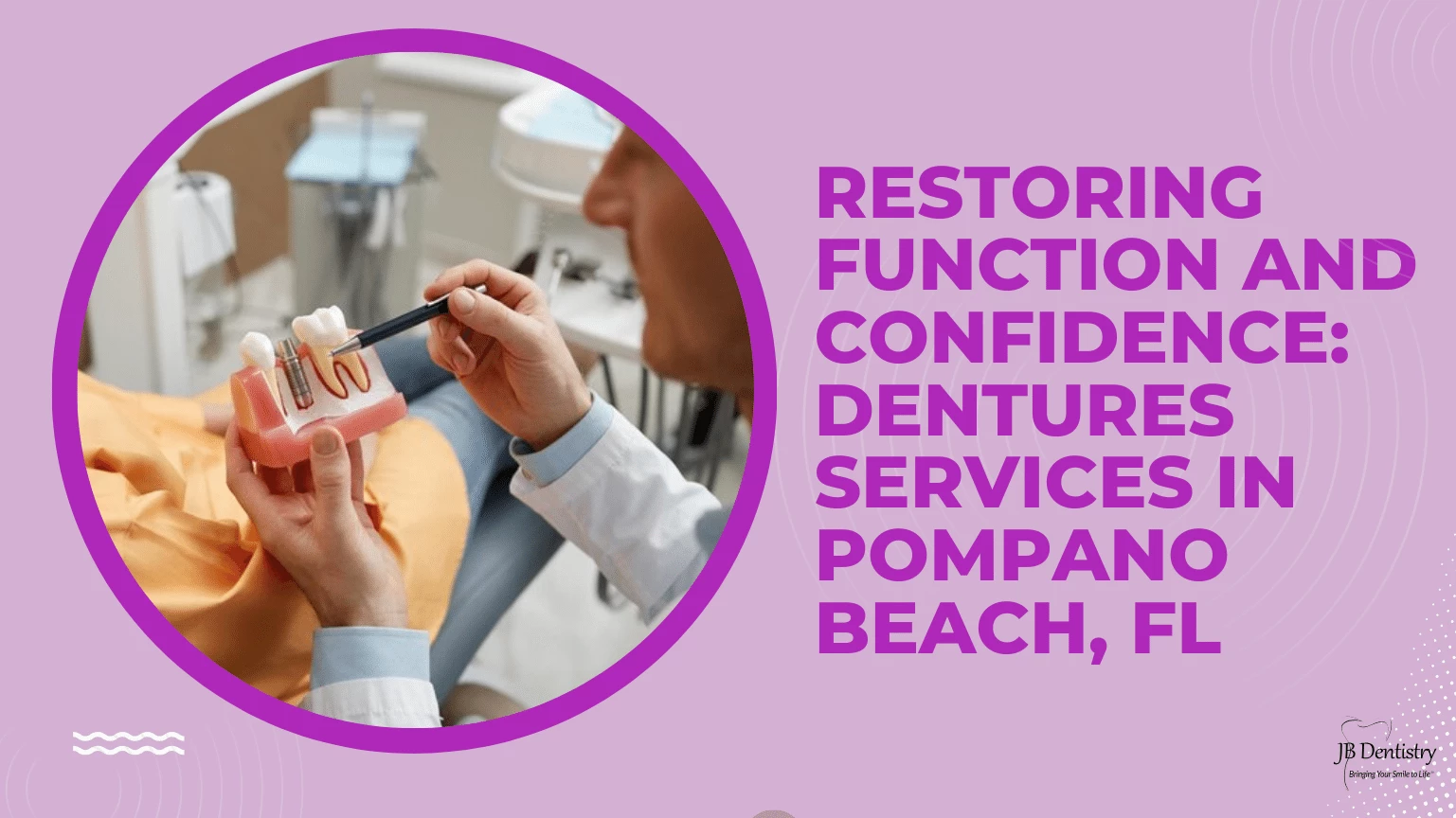
Why Conversations Around Dental Crowns, Implants, and Veneers are Finally
Not long ago, conversations about dental crowns, implants, and veneers felt rushed, confusing, or even intimidating. Patients were often told…

Dr. Jaline Boccuzzi DMD AAACD PA 